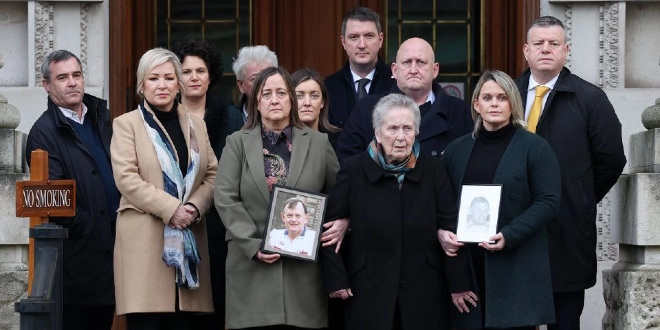The British government has confirmed it will challenge a recent ruling by Northern Ireland’s Court of Appeal that ordered the establishment of a public inquiry into the 1997 killing of GAA official Sean Brown. An appeal will now be lodged with the Supreme Court in London, further extending a legal process that has already spanned decades.
Northern Ireland Secretary Hilary Benn stated that the government requires additional time to prepare a comprehensive response to the judgment. He emphasized that the matter involves complex legal and procedural issues that necessitate input from government advisers before a formal reply can be provided.
Delay Sparks Family Frustration Amid Long-Running Legal Effort
Earlier this month, Northern Ireland’s highest court ruled that an inquiry into Sean Brown’s murder should be initiated without further postponement. In her written decision, Chief Justice Siobhan Keegan determined that the UK government had failed to uphold its human rights obligations by not conducting a full and effective investigation into possible state collusion in the case.
The judgment gave Secretary Benn four weeks to respond. That period was nearing expiration when he requested an extension, citing the need to properly address the questions raised by the court.
Outside the courthouse, Mr. Brown’s widow, Bridie Brown, publicly expressed her dissatisfaction. She reminded officials that multiple judges had supported the call for an inquiry and urged the government to follow through without forcing her to travel to London for further proceedings. The Brown family has otherwise chosen not to issue a formal public statement in response to the latest development.
Background on the Murder and Inquiry Demands
Sean Brown, a 61-year-old father of six and a respected GAA club official, was abducted by members of the Loyalist Volunteer Force in May 1997 while closing the gates at Bellaghy Wolfe Tones GAA Club in County Derry. He was forced into the boot of his car, transported to Randalstown in County Antrim, and fatally shot. His body was later discovered at the scene. No one has ever been convicted in connection with the killing.
A now-abandoned inquest revealed that intelligence linked 25 individuals to the murder, including known state agents. These revelations have added to concerns about potential collusion between loyalist paramilitaries and British security forces.
In response to years of unanswered questions, Mrs. Brown launched legal proceedings aimed at compelling the government to initiate a formal public inquiry. The UK government had resisted the request, encouraging the family to instead engage with the Independent Commission for Reconciliation and Information Recovery (ICRIR), a body created under the UK’s Legacy Act.
While the current Labour government has committed to repealing and replacing the Legacy Act—originally introduced by the previous Conservative administration—it has expressed its intention to preserve the ICRIR as a key mechanism for investigating cases related to the Troubles.
Legal and Political Criticism Mounts Over Government’s Position
Despite the government’s position, the Court of Appeal found that the ICRIR does not possess the legal capacity or structural authority to investigate the Sean Brown case in a manner consistent with human rights standards. The court concluded that the only suitable process available under current law is a public inquiry conducted under the 2005 Inquiries Act.
In response to the UK government’s decision to appeal, a number of political figures in Northern Ireland have criticized the move. Sinn Féin Vice President and First Minister Michelle O’Neill described the decision as lacking compassion and undermining the principles of truth and justice. She accused the British government of attempting to force the Brown family into a system they do not trust, while simultaneously shielding those potentially involved in the murder.
SDLP MP Claire Hanna also condemned the appeal, calling it a failure to prioritize the rights of victims. She described the continued resistance to an inquiry as disgraceful, arguing that the government’s actions favor secrecy over accountability.
The legal proceedings surrounding the Sean Brown case now appear set to continue in the UK’s highest court. Meanwhile, the questions surrounding state involvement in his murder—and the broader legacy of unresolved killings during the Troubles—remain central to ongoing debates about justice, transparency, and reconciliation in Northern Ireland.
 The Daily Star Ireland
The Daily Star Ireland

